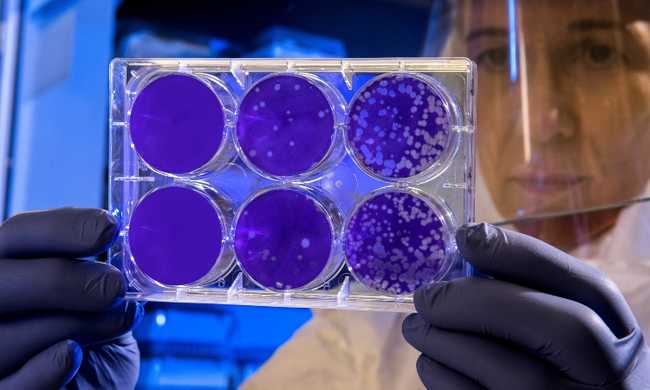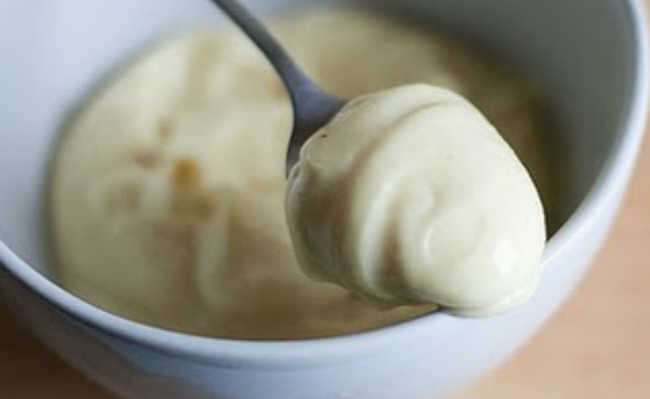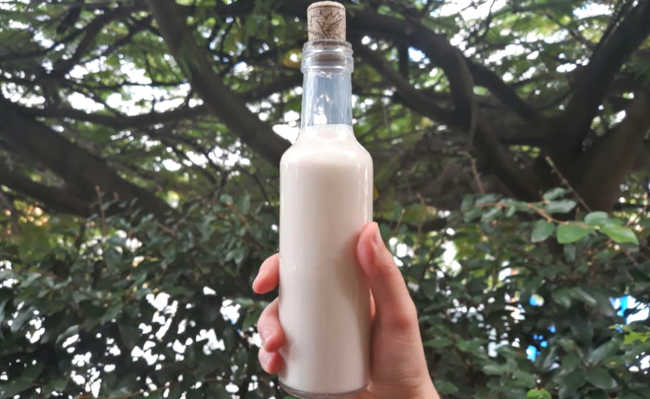Cinnamon: benefits and how to make cinnamon tea
Cinnamon and cinnamon tea have antioxidant, anti-diabetic, bactericidal, fungicidal and more properties.

Cinnamon tea is made from the inner bark of the species tree. Cinnamomum. Cinnamon has been used as an ingredient throughout history, dating back to ancient Egypt, when it used to be rare and valuable, and was considered a worthy gift for kings. Today, it is more affordable, available in most supermarkets, and is found in many recipes.
- What is Cinnamon Essential Oil for
There are two types of cinnamon. One of them is cinnamon-of-ceylon, also known as "true" cinnamon. The other type of cinnamon is cinnamon cassia, the most commonly found variety, which people often call "cinnamon".
Cinnamon is extracted from chips that dry and form coiling strips, better known as "cinnamon sticks". But the chips can also be ground to form cinnamon powder.
Cinnamon Benefits

Edited and resized image by Uriel Soberanes is available on Unsplash
1. Speeds up metabolism
The smell and taste of cinnamon is due to its oily part, which concentrates a compound called cinnamaldehyde. This compound is responsible for most of cinnamon's powerful health effects and speeds up metabolism.
2. It has antioxidants
Antioxidants protect the body against oxidative damage caused by free radicals. And, according to three studies published on the platform PubMed, cinnamon is rich in powerful antioxidants, such as polyphenols (check the studies here: 1, 2, 3).
Another study compared the antioxidant activity of 26 spices and concluded that cinnamon was the richest spice in antioxidants, surpassing foods like garlic and oregano.
Cinnamon is so powerful that it can be used as a natural food preservative. Consuming cinnamon tea is one possible way to get these antioxidants. However, despite studies confirming their presence in cinnamon, the spice tea has not been analyzed.
- Garlic oil: what is it for and benefits
- Ten Benefits of Garlic for Health
3. It has anti-inflammatory properties
Inflammation is important as it helps the body fight infections and repair tissue damage. However, it can become a problem when it is chronic (long-term) and directed against the body's own tissues. Cinnamon can be useful in this regard, as some studies show that its antioxidants have significant anti-inflammatory activity. Cinnamon tea, therefore, has the potential to be an ally in fighting inflammation, although its effects have not yet been analyzed.
- 16 foods that are natural anti-inflammatory
4. Reduces the risk of heart disease
Cinnamon has been linked to a reduced risk of heart disease, the most common cause of premature death worldwide.
In people with type 2 diabetes, one gram of cinnamon a day has beneficial effects on blood markers.
According to one study, cinnamon still lowers total cholesterol, LDL cholesterol and triglyceride levels, while HDL cholesterol (considered "good cholesterol") remains stable.
- Does altered cholesterol have symptoms? Know what it is and how to prevent it
Another study found that a dose of cinnamon as little as 120 milligrams a day could have these effects. In that study, cinnamon also increased HDL ("good" cholesterol). In animal analyses, cinnamon has been shown to reduce blood pressure. When combined, all of these factors can dramatically reduce your risk of heart disease.
5. Improves insulin sensitivity
Insulin is one of the main hormones that regulate metabolism and energy use. It is also essential for transporting blood sugar from the bloodstream and into cells. The problem is that many people are resistant to the effects of insulin. This condition, known as insulin resistance, is a hallmark of serious illnesses such as metabolic syndrome and type 2 diabetes.
The good news is that, according to two studies, cinnamon can dramatically reduce insulin resistance, helping this incredibly important hormone do its job (see studies here: 4, 5).
Adding powdered cinnamon to tea or recipes can be one way to achieve these benefits.
6. Lowers blood sugar
Cinnamon is well known for its blood sugar lowering effects. In addition to its beneficial effects on insulin resistance, it also lowers blood sugar by lowering the amount of glucose that enters the bloodstream after a meal.
It does this by interfering with numerous digestive enzymes, which slow down the breakdown of carbohydrates in the digestive tract, according to two studies (see here: 6, 7).
In addition, a compound from cinnamon can act on cells, mimicking insulin (see studies on this here: 8, 9). This greatly improves the uptake of glucose by cells, although it works much more slowly than insulin itself. Human trials have confirmed cinnamon's anti-diabetic effects, showing that it can reduce fasting blood sugar levels by 10 to 29% (see studies on this here: 10, 11, 12).
The effective dose is about one to six grams of cinnamon a day (about 0.5 to two teaspoons).
7. Prevents neurodegenerative diseases
Neurodegenerative diseases are characterized by the progressive loss of brain cell structure or function. Alzheimer's disease and Parkinson's disease are the two most common types.
According to three studies, cinnamon has two compounds capable of inhibiting a protein in the brain whose accumulation is associated with Alzheimer's disease (see studies 13, 14, 15 here).
In a study that looked at rats with Parkinson's disease, cinnamon helped protect neurons, normalize neurotransmitter levels and improve motor function.
8. Prevents cancer
Cancer is a serious disease characterized by uncontrolled cell growth. Cinnamon has been widely studied for its potential use in cancer prevention and treatment. Until now, studies have been limited to test tube experiments and animal studies, but suggest that cinnamon extract may protect against cancer (see studies 16, 17, 18, 19, 20 here).
A study in mice with colon cancer showed that cinnamon is a potent activator of colon detoxifying enzymes, protecting against cancer growth.
These findings were supported by test tube experiments, which showed that cinnamon activates protective antioxidant responses in human colon cells.
9. Fights fungi and bacteria
Cinnamaldehyde, the main active component of cinnamon, can help fight various types of infection. Cinnamon oil has been found to be effective in fighting respiratory tract infections caused by fungi.
According to two studies, it can also inhibit the growth of certain bacteria such as Listeria and the salmonella (check the studies here: 21, 22).
Cinnamon's antimicrobial effects may also help prevent tooth decay and reduce bad breath, according to two other studies (see here: 23, 24).
10. Helps fight the HIV virus
HIV is a virus that slowly derails the immune system and can lead to AIDS if left untreated. According to two studies published on the platform PubMed, cinnamon extracted from cassia varieties helps fight HIV-1. A laboratory study analyzed the relationship of HIV-infected cells with 69 medicinal plants and reveals that cinnamon was the most effective treatment. However, tests in humans are needed to confirm these effects, mainly in the form of cinnamon tea.
11. Relieves menstrual discomfort
In a study published by the platform PubMed, adolescents who took capsules containing 420 mg of cinnamon three times a day during the menstrual period had a significant reduction in menstrual cramps, nausea, vomiting and bleeding during the first 72 hours of the cycle compared to the group taking a placebo. These benefits were not accompanied by any side effects and, according to the study, this can be considered a safe and effective treatment for dysmenorrhea in young women.
- What is the menstrual cycle?
- What is menstruation?
- What is a fertile period and how to calculate
Is it better to use real cinnamon or cassia?
Not all cinnamon is grown equal. The cassia variety (the most common on the markets) contains significant amounts of a compound called coumarin, which is believed to be harmful in large doses.
However, all cinnamon has health benefits, but cassia can cause problems in large doses due to its coumarin content.
True cinnamon (ceylon cinnamon) is much better in this regard since, according to studies, it has less coumarin than cassia cinnamon.
Unfortunately, most of the cinnamon found in supermarkets is the cassia variety, which is cheaper.
How to make cinnamon tea

Edited and resized image by Joanna Kosinska is available on Unsplash
To consume cinnamon, it doesn't have to be just in the form of tea. You can add powdered cinnamon to other flavored teas, desserts and even savory recipes.
But if you want to make cinnamon tea for its benefits, go for real cinnamon, also known as ceylon cinnamon.
Ingredients
- Two units of cinnamon stick
- two cups of water
Method of preparation
Put two cups of water and the cinnamon stick to a boil for five minutes. Let it warm, remove the cinnamon stick and drink.
Heads up
Cinnamon tea is abortive, as it stimulates uterine contractions, even facilitating menstruation (in the case of those who are not pregnant). Therefore, in order not to interrupt a possible pregnancy, avoid the consumption of cinnamon tea.










